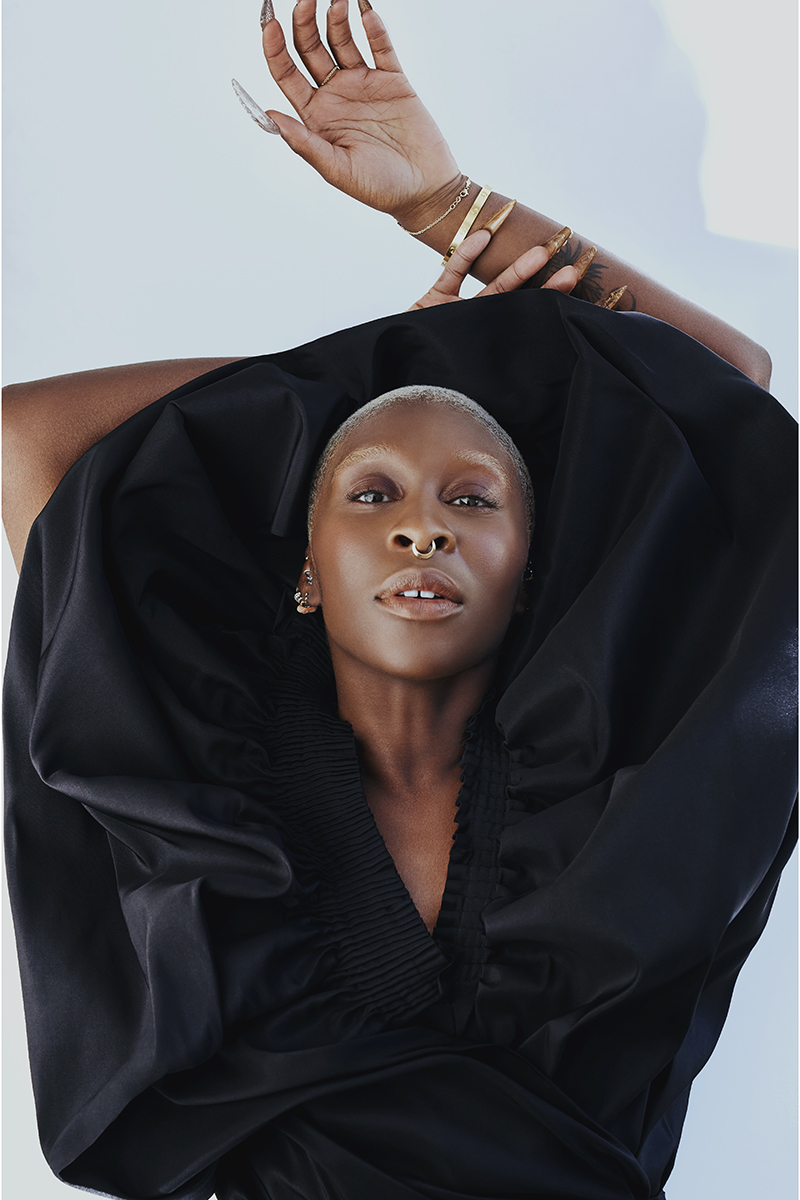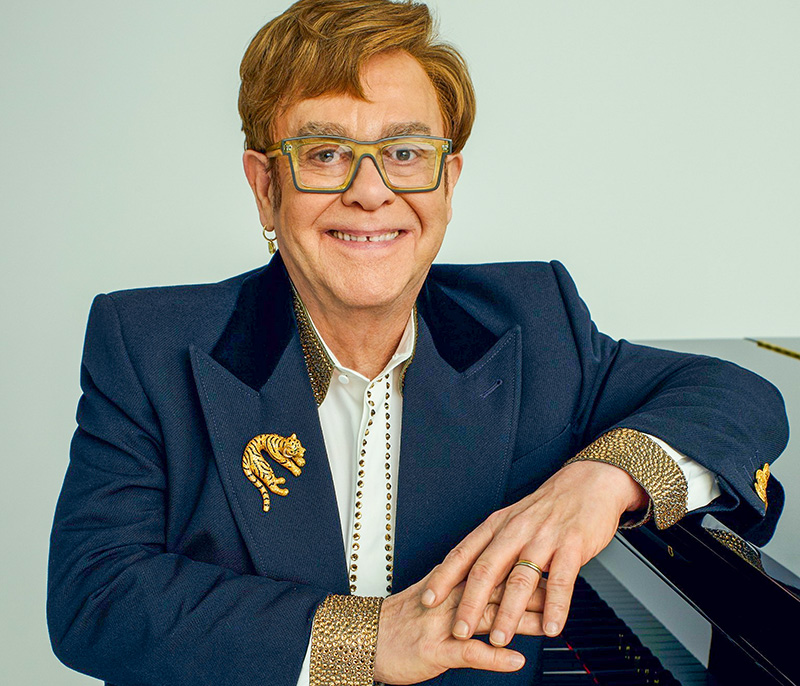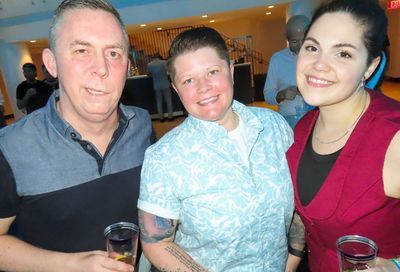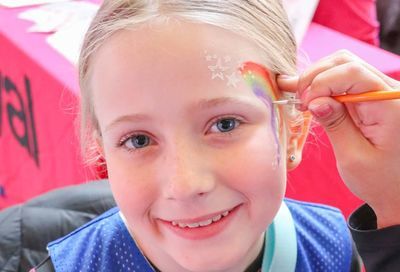“Common Ground to Share Joy”: Walk to End HIV Steps Off on Oct. 22
36th annual event seeks to raise funds for Whitman-Walker Health’s HIV prevention, research, and education initiatives.

On Saturday, Oct. 22, thousands will pour outside to the pavilion of Gateway DC, on Southeast D.C.’s Saint Elizabeths campus. They’ll stretch before taking a walk. Along the way, they might listen to music, watch a drag performance, enjoy food trucks and get free HIV testing.
And they’ll raise money for a cause: Whitman-Walker Health’s Walk to End HIV.
“HIV is still epidemic in D.C.,” says David Mallory, the director of annual giving and community partnerships at Whitman-Walker Health System’s philanthropic branch. “The care that we provide, the community education that we provide, the free testing is essential.”
Whitman-Walker Health offers community-based health services to those throughout the city, focusing on HIV care and LGBTQ-competent medical care. Its 36th Walk to End HIV serves as the group’s largest annual fundraiser, bringing in money for HIV prevention, research, health education and treatment.
On the day of the walk, Whitman-Walker will offer same-day HIV testing, as well as education materials and preventative measures like condoms. The event — and those services — are available to all, whether or not participants fundraise or donate.
Ramatoulaye Keita, Whitman-Walker Health’s director of community health, coordinates the mobile van that will bring HIV testing to the event. She’s hoping to connect people there to the care that Whitman-Walker offers.
“We have comprehensive health care services, primary care services, behavioral health services, dental services,” Keita says. “Just a really low barrier method to accessing healthcare.”
She also wants to build trust among the D.C. community, outside a medical setting.
“It’s great to share space. It’s great to have a common ground to share joy in the moment with our clients,” she says.
That’s especially true after so much time spent offering virtual healthcare. Because of the pandemic, Whitman-Walker pivoted to offer virtual appointments, increasing its social media presence and setting up COVID testing tents. The Walk to End HIV hasn’t happened on its typical scale for the past two years.

People are still welcome to walk on their own, Mallory says, but he’s expecting many to turn out for the in-person event this year.
“Folks are just really excited to be back in person and be with community,” he says. “I think community is really what defines the walk and just the spirit and the commitment to ending HIV.”
This year marks Mallory’s 18th working on the Walk to End HIV, and he’s been participating in the event even before that. The community has always stayed strong, he said, even as the Walk to End HIV’s tone shifted along with the trajectory of the HIV epidemic.
“They were as much a protest as they were a fundraising walk [in the early days],” Mallory says. “But these days, it’s also a celebration of those who are living with HIV now for decades.”
In that spirit, Whitman-Walker will debut its Silver Striders program, for those 55 and older. The Striders will get refreshments and a VIP tent, “to honor the generations who lived through the epidemic and through its worst stages.”
Also new this year is the Walk to End HIV’s location. While historically, the Walk to End HIV has launched from Pennsylvania Avenue NW, in downtown D.C., this year the walk and its companion 5-kilometer run will kick off from Gateway DC and circle the grounds of St. Elizabeths East. Participants will walk by the building that will soon house the new Max Robinson Center, which is set to open next year, and marks the biggest expansion in Whitman-Walker’s history.
Walking past the Max Robinson Center will show participants what their support contributes to, says Mallory. “It demonstrates the future of Whitman-Walker, and our commitment to eliminating health disparities,” especially among lower-income residents and communities of color.
That commitment to fighting systemic issues is why Keita’s in this line of work. She knows how important it is to “break those barriers down, for this community — and my community.”
“I think it’s vital,” she said. “You’re able to connect folks to so many other things that they don’t even realize that they need.”
Whitman-Walker Health’s 36th Walk & 5K to End HIV will be held on Saturday, Oct. 22 at Gateway DC, on the St. Elizabeths East campus. To register, or for more information on the walk, including sponsorship opportunities and a list of the top team and individual fundraisers, visit www.walktoendhiv.org.
Support Metro Weekly’s Journalism
These are challenging times for news organizations. And yet it’s crucial we stay active and provide vital resources and information to both our local readers and the world. So won’t you please take a moment and consider supporting Metro Weekly with a membership? For as little as $5 a month, you can help ensure Metro Weekly magazine and MetroWeekly.com remain free, viable resources as we provide the best, most diverse, culturally-resonant LGBTQ coverage in both the D.C. region and around the world. Memberships come with exclusive perks and discounts, your own personal digital delivery of each week’s magazine (and an archive), access to our Member's Lounge when it launches this fall, and exclusive members-only items like Metro Weekly Membership Mugs and Tote Bags! Check out all our membership levels here and please join us today!


























You must be logged in to post a comment.